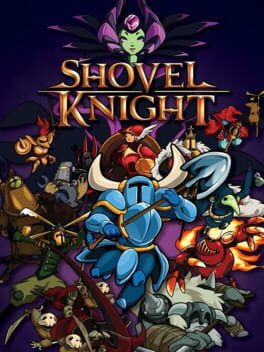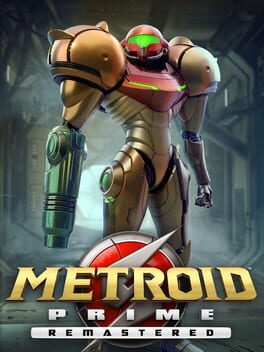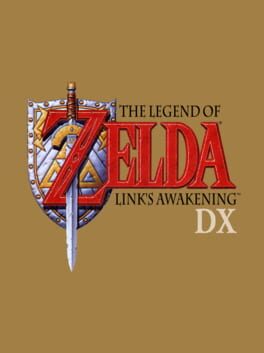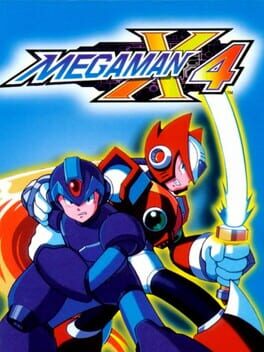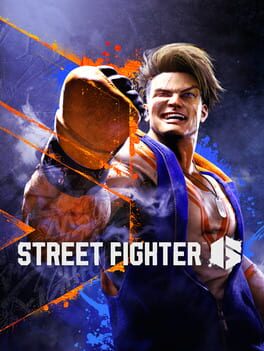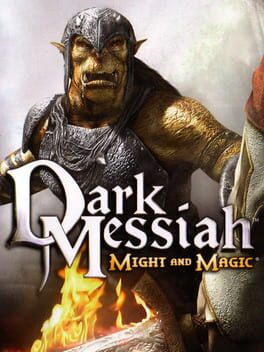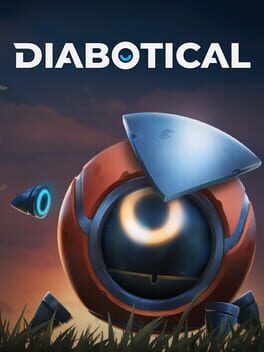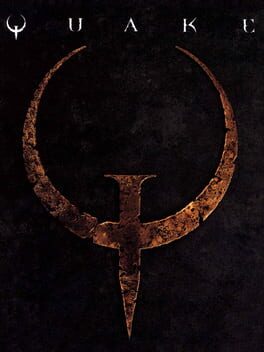synthezoid
2014
A severe banger with so much polish I'm about to pass out from the fumes and nothing resembling a flaw. If I have any complaints, it's just that it's too easy to give me the same rush the very best moments of classic Mega Man, Castlevania, or Ninja Gaiden sometimes do, even if those games all have much lower lows.
2002
I started this game a couple times before, but for one reason or another, I lost my save data each time. It took this remaster for me to finally revisit Metroid Prime.
Prime is Metroid's Ocarina of Time moment, a studio putting all their cards on the table to adapt a then-iconic series of 2D games into 3D and see how many of its hallmarks they could nail. The answer is "quite a lot of them." In switching to a first-person view, Retro Studios committed to an intensely personal, immersive experience. Super Metroid is one of the most atmospheric 2D games of its time, and Prime is easily one of the most atmospheric titles of the 3D era, owing heavily to its presentation, aesthetics, and music. The series' trademark exploration and power-progression are there to a T, even if the 3D structure and scale of the world changes the rhythm and texture of these elements.
Some of the biggest changes to the Metroid formula also feel indebted to Ocarina of Time's lasting influence on 3D action-adventure games. Where most boss fights in 2D Metroid are straightforward action affairs, testing your platforming and shooting abilities, Prime opts for more puzzle-oriented encounters for most of its bosses, asking you to interact with the environment or make clever use of your visors, beams, or morph ball to deal or avoid damage. Many of the game's secrets take a Zelda-like approach, too, tasking you with observing where a particular item might be useful and solving puzzles using each tool at your disposal. In general, the balance is tilted less towards uncovering hidden secrets and more towards working out problems with open information. Yet, where Ocarina of Time felt a bit dated and cumbersome to me the last time I revisited it, this simple remaster feels just as exciting as any game from 2023.
In all honesty, I get that there are completely valid criticisms of this game. I can see how the artifact hunt could feel cumbersome to some players (though I managed to get a few artifacts while exploring, and the rest I got in a couple simple trips, most before and a few after getting the plasma beam. To me, the whole process felt like a quick and pleasant victory lap--I was honestly expecting much worse than it actually turned out to be). I have to concede that beam-swapping can feel clunky, and the combat doesn't offer much depth beyond matching up the right beam and occasionally the right visor to a given enemy. And on top of that, the sequence breaking potential isn't as rich as something like Super Metroid due to a lack of expressive movement options. But none of that seemed to matter while I was playing. I was captivated the whole way through. There are no moments that truly let the game down, just a few that hints that its formula has even more potential than we've yet seen. Metroid Prime is a game that can completely engross you in its world. A relatively short playtime (compared to other action-adventure games, not necessarily to other Metroidvania titles) undoubtedly helps with this. When astronauts step onto the moon, do they complain about the backtracking they'll have to do to get home? Of course not; they know they're experiencing something special. It won't last forever; appreciate it while it does.
When it comes to this remaster, I will die on the hill that the original release of this game has aged surprisingly well. In terms of its legacy controls, the entire game is calibrated around its restrictions on strafing and aiming, similar to Resident Evil 4 (another GameCube tank-control classic). Unlike RE4, though, adding modern control options doesn't necessitate redesigning any of Prime's world or enemies. It just feels a little bit smoother, a little bit more intuitive. And, even if it doesn't impress as much as it did 20 years ago, Prime on the Gamecube is still a good looking game to this day, but man, the vibes in this remaster are immaculate. It looks 1:1 how I remember Metroid Prime looking, but a side-by-side comparison will make clear just how much work went into beautifying this game. When I watch the rain drip down my visor, you could convince me that Tallon IV is a real place, and I am there. That's always been Metroid Prime's secret.
Prime is Metroid's Ocarina of Time moment, a studio putting all their cards on the table to adapt a then-iconic series of 2D games into 3D and see how many of its hallmarks they could nail. The answer is "quite a lot of them." In switching to a first-person view, Retro Studios committed to an intensely personal, immersive experience. Super Metroid is one of the most atmospheric 2D games of its time, and Prime is easily one of the most atmospheric titles of the 3D era, owing heavily to its presentation, aesthetics, and music. The series' trademark exploration and power-progression are there to a T, even if the 3D structure and scale of the world changes the rhythm and texture of these elements.
Some of the biggest changes to the Metroid formula also feel indebted to Ocarina of Time's lasting influence on 3D action-adventure games. Where most boss fights in 2D Metroid are straightforward action affairs, testing your platforming and shooting abilities, Prime opts for more puzzle-oriented encounters for most of its bosses, asking you to interact with the environment or make clever use of your visors, beams, or morph ball to deal or avoid damage. Many of the game's secrets take a Zelda-like approach, too, tasking you with observing where a particular item might be useful and solving puzzles using each tool at your disposal. In general, the balance is tilted less towards uncovering hidden secrets and more towards working out problems with open information. Yet, where Ocarina of Time felt a bit dated and cumbersome to me the last time I revisited it, this simple remaster feels just as exciting as any game from 2023.
In all honesty, I get that there are completely valid criticisms of this game. I can see how the artifact hunt could feel cumbersome to some players (though I managed to get a few artifacts while exploring, and the rest I got in a couple simple trips, most before and a few after getting the plasma beam. To me, the whole process felt like a quick and pleasant victory lap--I was honestly expecting much worse than it actually turned out to be). I have to concede that beam-swapping can feel clunky, and the combat doesn't offer much depth beyond matching up the right beam and occasionally the right visor to a given enemy. And on top of that, the sequence breaking potential isn't as rich as something like Super Metroid due to a lack of expressive movement options. But none of that seemed to matter while I was playing. I was captivated the whole way through. There are no moments that truly let the game down, just a few that hints that its formula has even more potential than we've yet seen. Metroid Prime is a game that can completely engross you in its world. A relatively short playtime (compared to other action-adventure games, not necessarily to other Metroidvania titles) undoubtedly helps with this. When astronauts step onto the moon, do they complain about the backtracking they'll have to do to get home? Of course not; they know they're experiencing something special. It won't last forever; appreciate it while it does.
When it comes to this remaster, I will die on the hill that the original release of this game has aged surprisingly well. In terms of its legacy controls, the entire game is calibrated around its restrictions on strafing and aiming, similar to Resident Evil 4 (another GameCube tank-control classic). Unlike RE4, though, adding modern control options doesn't necessitate redesigning any of Prime's world or enemies. It just feels a little bit smoother, a little bit more intuitive. And, even if it doesn't impress as much as it did 20 years ago, Prime on the Gamecube is still a good looking game to this day, but man, the vibes in this remaster are immaculate. It looks 1:1 how I remember Metroid Prime looking, but a side-by-side comparison will make clear just how much work went into beautifying this game. When I watch the rain drip down my visor, you could convince me that Tallon IV is a real place, and I am there. That's always been Metroid Prime's secret.
2023
1997
It's a Mega Man X game, alright. There are some prominent new additions to the formula, of course; the voice acting is hilarious, and finally getting to play as Zero feels fantastic, even if a few of his unlockable moves feel clunky in practice. It's a pretty cool prototype for the Mega Man Zero games, if nothing else.
Like basically any retro platformer, the game would be more fun with save states at checkpoints than with the lives system it actually uses. (I played this on the Mega Man X Legacy Collection. Naturally, Capcom didn't bother including save states in this latest release of the game. This wasn't an issue for a while; I just played the game as designed. But at the final boss, I had to close the game. Luckily, I saved. Except saving there doesn't actually record your progress through the preceding 8-boss gauntles, even though you get a checkpoint right before Sigma if you just bother to leave the game running. God forbid you be momentarily unable to reschedule your life around Mega Man X4. That's the kind of silly time-wasting I can almost forgive in an older game, but which I would expect a port to at least offer an optional fix for. Any emulator on earth could solve that problem.) Yes, I will die on this hill.
While most of the levels and bosses are a reasonable difficulty--some surprisingly easy with the right tools--there are a few spikes that made this game feel less refined than X1. X4 is Mega Man X at its most, but not necessarily its best.
Like basically any retro platformer, the game would be more fun with save states at checkpoints than with the lives system it actually uses. (I played this on the Mega Man X Legacy Collection. Naturally, Capcom didn't bother including save states in this latest release of the game. This wasn't an issue for a while; I just played the game as designed. But at the final boss, I had to close the game. Luckily, I saved. Except saving there doesn't actually record your progress through the preceding 8-boss gauntles, even though you get a checkpoint right before Sigma if you just bother to leave the game running. God forbid you be momentarily unable to reschedule your life around Mega Man X4. That's the kind of silly time-wasting I can almost forgive in an older game, but which I would expect a port to at least offer an optional fix for. Any emulator on earth could solve that problem.) Yes, I will die on this hill.
While most of the levels and bosses are a reasonable difficulty--some surprisingly easy with the right tools--there are a few spikes that made this game feel less refined than X1. X4 is Mega Man X at its most, but not necessarily its best.
2023
Dark Messiah of Might and Magic is vulgar auteurism in game form. The hallmarks of Arkane's oeuvre are all here, but with none of the polish or restraint you're used to. Violence and sex and the plots of the pulpiest fantasy books you've ever read swirl like ether in its sorcerous hands. It's what Thief would be if the developers were influenced by Half-Life 2 instead of Ultima Underworld. Dark Messiah is clearly an immersive sim, but tune your expectations of what that means: instead of intricate stealth sandboxes, it throws you into a linear, setpiece-heavy physics playpen where your greatest joy will be finding increasingly grotesque ways of murdering orcs. It's hard to believe that the dedicated kick button didn't permanently alter the course of FPS design the way Halo's regenerating health did.
It's also insanely horny, like it was written by the guy from your first high school D&D game who was always trying to seduce the NPCs. It's janky, it's too dark to see half the time, and it would crash at least once every hour, even after I found a fix to stop the most game-breaking crashes. When it works, though, it's also a brisk, bloody, brilliant time.
It's also insanely horny, like it was written by the guy from your first high school D&D game who was always trying to seduce the NPCs. It's janky, it's too dark to see half the time, and it would crash at least once every hour, even after I found a fix to stop the most game-breaking crashes. When it works, though, it's also a brisk, bloody, brilliant time.
2020
The decision to make player characters egg-shaped is a pretty clever way of communicating that there are no headshots in this game, something that has always seemed a bit confusing to newcomers jumping into Quake in the post-Call-of-Duty era. The decision to release an esports-ready competitive shooter with no personality of its own on the Fortnite launcher wasn't quite as clever. Diabotical may as well have been dead on arrival.
It could still be lots of fun, of course. It's transparently a Quake III clone at its core, the movement and shooting were both as fun as always, and the original maps all felt adequately designed. But multiplayer shooters live and die on so much more than just the competence of their design. Slavish adherence to arena shooter tradition alone doesn't bring in new blood, as much as we all wish it could. Without the community to back it up, Diabotical became a mausoleum for its own ambition.
It could still be lots of fun, of course. It's transparently a Quake III clone at its core, the movement and shooting were both as fun as always, and the original maps all felt adequately designed. But multiplayer shooters live and die on so much more than just the competence of their design. Slavish adherence to arena shooter tradition alone doesn't bring in new blood, as much as we all wish it could. Without the community to back it up, Diabotical became a mausoleum for its own ambition.
1996
We all know that Quake 1 is one of the most important games in history. Is it basically Brown Doom with a Y-axis and a fondness for Nine Inch Nails? Yes, and that's what's so great about it. It's also an effortlessly iconic shooter that still feels good today. A few clunky aspects and inconsistent level quality give Quake a case of Super Mario World syndrome; it's often more fun to play custom levels in its engine than it is to actually play the original campaign. I guess that's the price you pay for changing games forever.
There are a million different ports and forks of Quake nowadays, and they're pretty much all fine, but I have no qualms recommending the Nightdive remaster. It's packed with extra content and quality-of-life features, runs well on modern platforms, and, seriously, even the Switch port is great (just take the time to calibrate the gyro aiming).
There are a million different ports and forks of Quake nowadays, and they're pretty much all fine, but I have no qualms recommending the Nightdive remaster. It's packed with extra content and quality-of-life features, runs well on modern platforms, and, seriously, even the Switch port is great (just take the time to calibrate the gyro aiming).
